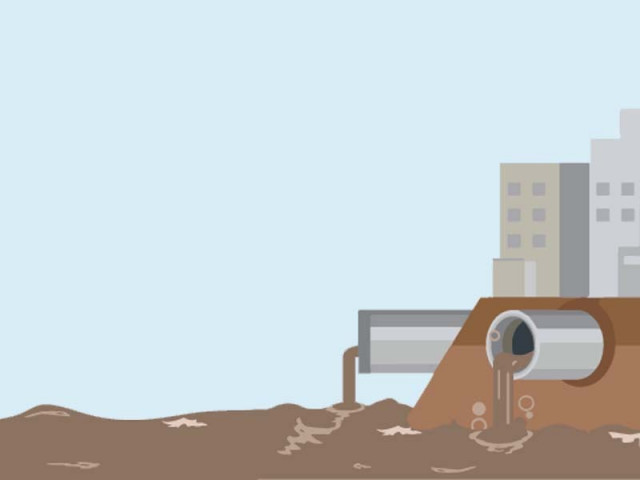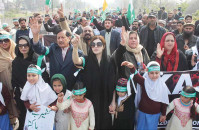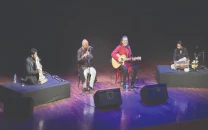Downpours damage Karachi’s only sewage plant
About 460 MGD of sewage water is being dumped into the sea untreated

Owing to the damage caused by the recent spell of torrential rains across Sindh, the only operational treatment plant for cleaning Karachi’s sewage water has become dysfunctional. What is more, even after a month, nothing has been done to repair or change the machines.
Situated at Mauripur, Treatment Plant-III, or TP-III, started operations one and a half years ago on the orders of the Supreme Court of Pakistan.
However, due to the havoc wreaked by the recent rains across the city and the subsequent flooding, irreparable damage has been done to TPIII, causing its machines to stop working. The plant can treat and filter 77 million gallons of water daily (MGD) before dumping it into the sea.
But as a result of the plant’s closure, all of Karachi’s sewage water - around 460 MGD of it - is being dumped into the sea untreated, which can be devastating to marine life.
According to sources, the operational life of the machines across the three treatment plants of Karachi Water and Sewerage Board (KWSB), including TP-I, TP-II and TP-III, ended in 2008, due to which all the three treatment plants were shut down and all sewage water of Karachi was discharged into the sea without treatment.
The KWSB formulated the S-III project for the rehabilitation of the treatment plants and installation of a transmission line in Lyari and Malir rivers. In 2012, the federal and provincial governments approved the project, under which each agreed to contribute 50 per cent of the funds.
The construction work on the project started in 2013 and was supposed to be completed in two years, but due to the rising cost of the works, the project remained incomplete due to strife between the federal and the provincial governments for seven years.
The development work for Phase-II of the project has not even started yet, but most of the work of Phase-I has been completed and half of the work related to the installation of the transmission line on the Lyari River has been completed. However, treatment plants are still inactive.
In 2018, the KWSB, on the orders of the Supreme Court, installed new machinery at TP-III at Mauripur, while restoring some of the old machinery to make the facility operational.
On July 22, 2018, then Chief Justice of Pakistan Saqib Nisar inaugurated the restored TP-III plant through which 77 MGD of sewage water was filtered per day before being dumped into the sea.
Nonetheless, the remaining 383 MGD of sewage water continued to be dumped into the sea without any treatment.
Sources at KWSB, who preferred to stay anonymous, said the operation and management of the system have been delegated to a private contractor.
“The contractor has been running the project for almost a year and a half now,” a KWSB officer told The Express Tribune. “During this time, the treatment plant was temporarily shut down three times due to the non-payment of the contractor’s dues and other reasons.”
He added that since the recent spell of the torrential rains in Karachi, the plant has been shut down again for over a month. He also said that the contract between the water board and the contractor has expired and the latter has also sent a letter to hand over the system to the water board.
TP-III project director Hanif Baloch said that due to the devastating rains in August, the treatment plant was submerged and its electrical system went completely out of order. However, its mechanical system remained intact.
“The TP-III’s operating system has been shut for the last 20 days. The electrical system has been repaired during the monsoon rains, but floodwater is still standing inside the plant due to which the machinery has not been activated yet,” Baloch explained. “The seawater also penetrated the TP-III tanks and now de-watering is being gradually carried out. It also rained again recently because of which the de-watering process had to be halted.”
Baloch added that the process of de-watering would resume as soon as the rains end, after which the 77 MGD plant would become operational again.
Published in The Express Tribune, September 19th, 2020.



















COMMENTS
Comments are moderated and generally will be posted if they are on-topic and not abusive.
For more information, please see our Comments FAQ